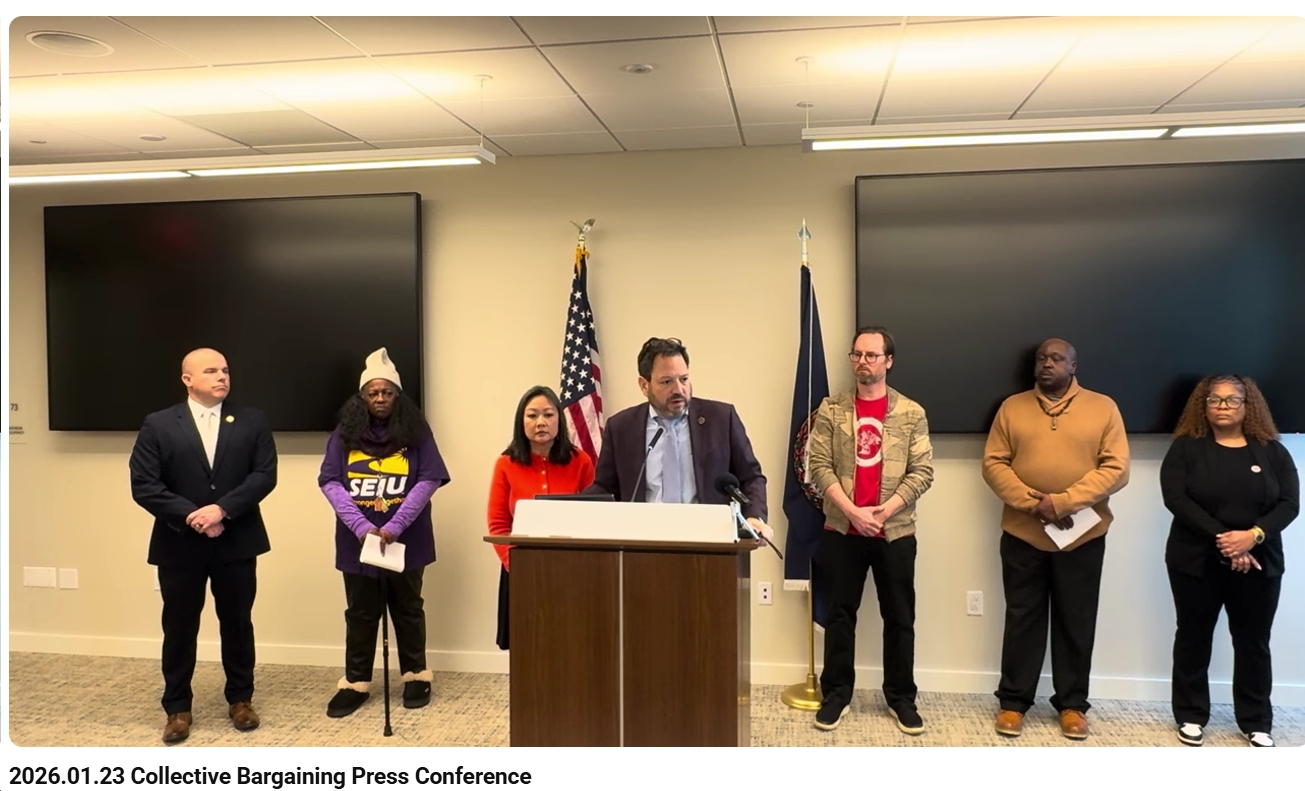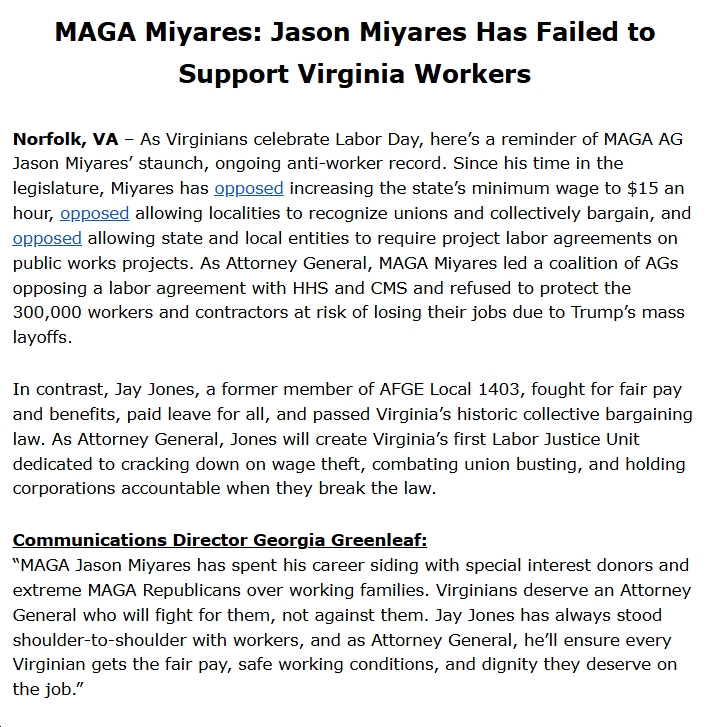By Bill Rice, a student at Georgetown University Law Center
After the huge electoral victory for Virginia Democrats this past November, taking majority control of the House of Delegates and State Senate, many began to raise their voice in support of repealing Virginia’s anti-worker, so-called “Right-To-Work” laws (Va. Code §§ 40.1-58 through 40.1-69). These are laws that prohibit private companies from entering into agreements with their unions that require employees to either join the union or that require non-union-member employees to pay union dues. In a previous Blue Virginia article, Matt Royer did an excellent job of delving into the history of these types of laws; in addition, he aptly covered the many reasons why a company and union may decide to establish such an agreement within their organization.
Since November, Democratic legislators have taken varying positions on the issue. Some have taken stands for repeal and voiced opposition to our current laws. While others have voiced support for keeping the law as is.
Yet in all of this, most of the debate surrounding repealing Virginia’s “Right-To-Work” law misses one of the central issues. An organization’s ownership and union agreeing to a contract that requires non-union members to pay union dues has its costs and benefits – it might be a good idea or a bad idea. But that’s not the issue with “Right-To-Work” laws. The central issue is: what right or concern is it of the government to interject itself in the democratic bargaining of private businesses, for the government to prohibit such agreements from being made? What compelling interest is there in the general welfare of the people for government to tell private citizens how they can or cannot democratically organize their private organizations in this instance?
The response one usually gets is that it protects the rights of individuals who do not want to join a union or pay union dues. But this is an odd way of viewing the “rights” of individuals. Usually we speak of rights in relation to what the government can or cannot do in its acts toward individuals. There are exceptions to this, of course, such as concerns over private companies discriminating against employees or consumers/customers. Here the government and society, rightfully, determined there was a compelling interest to protect discriminated communities from the power of private entities. We decided that it was in the general welfare to establish a society that prohibits such discrimination from powerful entities, whether they be governmental or private actors.
Otherwise, rarely do we hear a hue or cry over the various rights of workers within private companies.
We never hear “Right-To-Work” law proponents demand legislation protecting a worker from being fired or retaliated against by their employer for exercising their freedom of speech or expression. And when’s the last time we’ve heard calls for legislation from this camp prohibiting employers from violating their workers’ privacy rights by reading worker emails or searching workers’ cubicles and cabinets? Have we ever seen the proponents of “Right-to-Work” laws raise their voices for legislation requiring explicit due process guarantees and protections before an employer can fire a worker? Rather than supporting such measures, the proponents of “Right-to-Work” laws would likely vociferously resist such theoretical legislation as an unjustified governmental intrusion into the internal workings of private businesses, as an unwarranted violation of the free market.
During the conservative Lochner era of the U.S. Supreme Court, free-market proponents resisted minimum-wage laws and other governmentally-mandated worker protections for violating an individual’s right to contract. Many conservatives and libertarians continue to make similar arguments today. Yet when it comes to “Right-to-Work,” rarely does one hear such concerns over the right to contract.
The truth is that “Right-to-Work” laws aren’t about any real or substantive individual right “to work.” They’re about government intervening against workers in favor of ownership and CEO class interests – it’s government taking a side in disputes between laborers and owners, on the side of the owners.
Rather than protect rights, “Right-To-Work” laws involve government infringing on workers’ rights, and sometimes even owners’ rights, in varying ways. These laws violate workers’ and owners’ right to assemble, by telling them how they can or cannot structure their own private entity. They violate workers’ and owners’ right to contract, by prohibiting them from entering into certain types of contracts regarding required union dues for employees. Minimum-wage laws protect a majority of workers from substandard wages, while other worker-protection laws guard workers from unsafe or inhumane working conditions. These general welfare concerns clearly outweigh any individual right to contract in these instances. Yet how does a company’s requirement that an employee pay minimally-priced union dues outweigh the right of contract for the majority of employees and employers here?
At their core, “Right-To-Work” laws authorize government to come in and tell a private entity how it can and cannot democratically organize itself. It’s telling a private entity and the majority of its members that it cannot organize and structure itself in the way it desires – it’s an unwarranted interference with the democratic desires of private citizens.
Government intervention in private entities is sometimes preferable, even necessary, when protecting substantive rights against real harm. But here the so-called “right” protected appears minimal, while the rights violated are more substantial. If government is going to pick a side in conflicts between employers and employees, it should not be on the side of employers, who already exercise expansive power. In essence: to stand true to our principles of free assembly, free contract, and democracy, so-called “Right-to-Work” in Virginia needs to go.

![[UPDATED: VA Senate Dems Pass $15/Hour Minimum Wage Bill] VA House Democrats Pass Top Priority, Paid Sick Leave](https://bluevirginia.us/wp-content/uploads/2026/02/housedemspaidsick.jpg)















